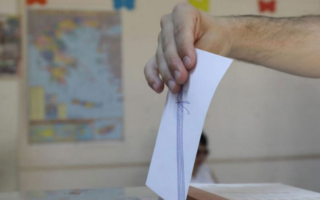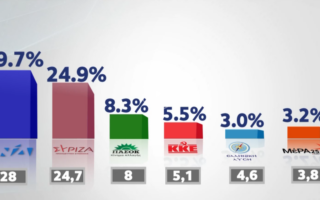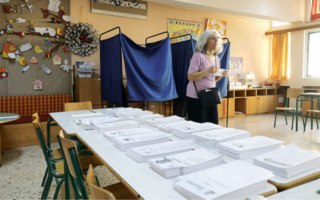Pollsters allege political pressure

Pollsters claim they did detect the trends that led to New Democracy’s triumph over SYRIZA in Sunday’s elections, but avoided publishing the results because of the “severe criticism” they were subjected to by main opposition SYRIZA.
Instead, they say, pollsters weighted the results in ways that favored SYRIZA, for example, by making the assumption that the youth vote would, as in the past, favor SYRIZA, instead of slightly favoring New Democracy, as surveys conducted after voting indicate.
“Pollsters could detect the trend in the unweighted [survey] results; however, because of SYRIZA’s severe criticism, they avoided publishing the results, instead weighting them in was favorable to SYRIZA,” a veteran political analyst told Kathimerini.
Dimitris Mavros, CEO of opinion research firm MRB, speaking toTV station OPEN, confirmed that the data from surveys conducted in the days leading up to the election reflected what, to must people, was the huge surprise of the actual voting results Sunday night.
“The truth is that, when you have been under pressure since 2015…from a certain political party – as happened in September 2015 and the 2019 elections – [claiming] that you underestimate a certain party you [look at the data] and say ‘is this an exaggeration? Have I, once again underestimated?’” Mavros added that the pollsters’ scientific qualifications, methodologies, even ethics came under scrutiny and were the subject of a communications campaign that essentially implied that they were producing bespoke results favoring SYRIZA’s opponents – namely, New Democracy.
“We tended to shy away from the data because we had PTSD from previous situations (when poll data were disproven by the actual result, notably during the July 2015 referendum on whether to accept EU conditions in return for aid on the country’s debt). “Raw data revealed the actual voting margin. If we [published], do you know what the [reaction] would be? ‘Your samples are trash. Throw them away.’ How could we have responded in the midst of an election campaign?” Mavros said.
Political pressure aside, there is also the issue of the youth vote, notes Giorgos Arapoglou of opinion research firm Pulse.
Pollsters are always concerned whether their samples are representative of the population at large. That’s why they apply “weighting” – a statistical term referring to privileging a set of data over others in arriving at a final outcome of a survey. A usual weighting measure in political opinion surveys is to ask participants how they voted in a previous election. This ensures that the current sample isn’t skewed one way or another. But, with first-time voters, this question cannot be asked. So, pollsters weighted responses reflecting previous elections, where the youth vote tilted toward SYRIZA: in the 2019 election, for example, SYRIZA got 38% of the 18-24 vote, while New Democracy won 30%. New Democracy won the actual election 39% to 31%. But, in this case, the weighting was necessarily speculative, and, in the end, wrong.





